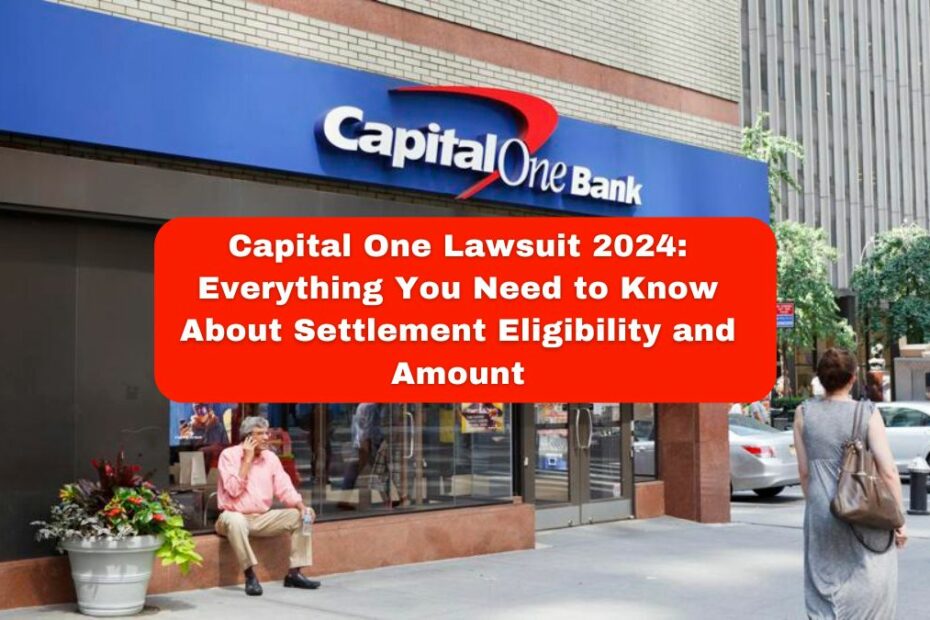In 2024, Capital One Bank faced a major lawsuit over unfair charges related to representment fees. If you’re looking for details about the Capital One Bank Lawsuit, this article will provide you with all the essential information. We’ll cover the nature of the lawsuit, the settlement amount, eligibility criteria, and what you should do to stay informed about these fees.
Capital One Bank Lawsuit 2024
The Capital One Bank Lawsuit of 2024 centers around representment fees. These fees were charged when a check or ACH transaction initially bounced due to insufficient funds but cleared later once enough funds were deposited. The lawsuit claims these fees were unfair because the transaction eventually succeeded.
Key Points:
- What Are Representment Fees? Representment fees are charges applied when a transaction bounces but clears successfully later.
- The Argument: The lawsuit argues that these fees were unfairly charged by Capital One even when the account eventually had enough funds.
Settlement Money Coming
A $16 million settlement was reached in June 2024. This settlement addresses representment fees charged from September 1, 2015, to January 12, 2022. The table below summarizes key details about the settlement:
| Aspect | Details |
|---|---|
| Settlement Amount | $16 million |
| Settlement Date | June 2024 |
| Coverage Period | September 1, 2015, to January 12, 2022 |
| Claims Window | Likely closed, but check your bank statements for updates |
What You Need to Know:
- Claims Window: The time to file claims may be closed, but it’s crucial to monitor your bank statements for any settlement-related issues.
- Future Actions: If you spot an unfair fee in the future, contact your bank. They might reverse the fee if you explain the situation.
Capital One Bank Lawsuit Eligibility
To qualify for the settlement, you had to meet specific criteria:
| Eligibility Criteria | Details |
|---|---|
| Account Holder | Must have held a Capital One account during the period |
| Charged Fees | Representment fees on checks or ACH transactions |
| Successful Transactions | Transactions should have cleared eventually |
Settlement Amount
The total settlement amount is $16 million. This sum will be divided among all eligible claims. The amount each person receives depends on the number of valid claims and the total number of claimants.
The Capital One Data Breach Lawsuit
It’s important to distinguish this lawsuit from the 2019 data breach lawsuit. The data breach settlement concluded in 2022, and its claims deadline has passed. However, identity theft protection services are still available until February 13, 2028.
All We Know
Here are some tips to help you avoid unfair fees in the future:
| Tip | Details |
|---|---|
| Maintain Sufficient Funds | Keep enough money in your account to avoid NSF situations |
| Monitor Transactions Regularly | Check your bank statements and online account frequently |
| Contact Your Bank | If you see an unfair fee, contact your bank for a possible reversal |
Conclusion
The Capital One Bank Lawsuit of 2024 addresses concerns about unfair representment fees. While the claims window is likely closed, knowing about this lawsuit helps you understand how these fees work and how to manage your bank account better. Keep an eye on your bank statements and stay informed about any fee issues.
FAQ’s
What is the Capital One Bank Class Action Lawsuit 2024 About?
The lawsuit concerns representment fees charged by Capital One on checks or ACH transactions that initially bounced due to insufficient funds but later cleared when funds were available. The case argues that these fees were unfairly charged even though the transactions eventually succeeded.
Who is Eligible for the Capital One Settlement?
To be eligible, you must have been a Capital One account holder between September 1, 2015, and January 12, 2022, and have been charged representment fees on checks or ACH transactions that later cleared successfully. The claims window for this settlement is likely closed.
How Much is the Capital One Settlement Worth?
The total settlement amount is $16 million. This amount will be divided among all eligible claimants based on the number of valid claims filed. Individual payouts will vary depending on the total number of claims and their validity.
